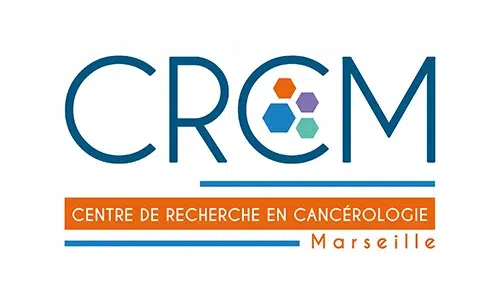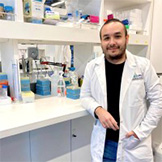Our research projects focus on understanding the biological consequences that result from replication of damaged genomes. The presence of damage in template DNA during replication is the major source of point mutations, the initiating cause of Cancer.
Lesion tolerance pathways / how cells tolerate lesions during replication ?
Despite efficient repair mechanisms, the presence of unrepaired lesions at the replication fork is a frequent event in all dividing cells. Cells possess two major strategies to tolerate lesion in their DNA:
- Translesion Synthesis (TLS) where specialized DNA polymerases insert a few nucleotides opposite the lesion with the possibility of introducing a mutation;
- Damage Avoidance (DA) strategies that are error-free as they rely on mechanisms related to homologous recombination with the sister chromatid.
The balance between these two strategies is very important since it defines the level of mutagenesis during lesion bypass.
We have developed a novel technology that allows us to insert a single lesion at a specific site of the bacterial chromosome. We can thus monitor in vivo and quantitatively the partition between Translesion Synthesis (TLS) and Damage Avoidance (DA) in different genetic backgrounds, in order to define the genes that regulate the choice among these pathways. For several replication-blocking lesions, we demonstrate that DA events massively outweigh TLS events and that DA events are highly dependent upon the presence of the RecA protein. More recently, in order to mimic a natural situation of genotoxic stress, we followed the fate of a site-specific lesion present among randomly distributed lesions in the rest of the chromosome. The data show that lesion tolerance events are executed in chronological order, with TLS coming first, followed by DA leading to the important conclusion that cells favor genetic diversity before insuring survival. We are also analyzing the early replication intermediates that form near the lesion site, at the molecular level (qPCR, 2D-gels, Electron Microscopy), to define the molecular mechanisms involved in lesion tolerance.
We have developed a similar approach in eukaryotic cells using the yeast Saccharomyces cerevisiae. Inserting a single lesion in the yeast genome enables us to investigate DNA damage tolerance mechanisms in this model organism, and to extrapolate our findings to human cells.
Team news
featured publications
Philippin, G., Dupaigne P., Chrabaszcz E., Iturralde M., Modesti M., Le Cam E., Pagès V.* and Laureti L
Masłowska,K.H., Wong,R.P., Ulrich,H.D. and Pagès,V.*
Chang,S., Laureti,L., Thrall,E.S., Kay,M.S., Philippin,G., Jergic,S., Pagès,V.* and Loparo,J.J.*
Laureti,L., Lee,L., Philippin, G., Kahi, M., Pagès, V.*
Masłowska,H.K., Villafanez, F., Laureti, L., Iwai, S., Pagès, V.*

Like others, they were part of the team. Thank you to all those who have contributed to CRCM's excellence and impact.
















